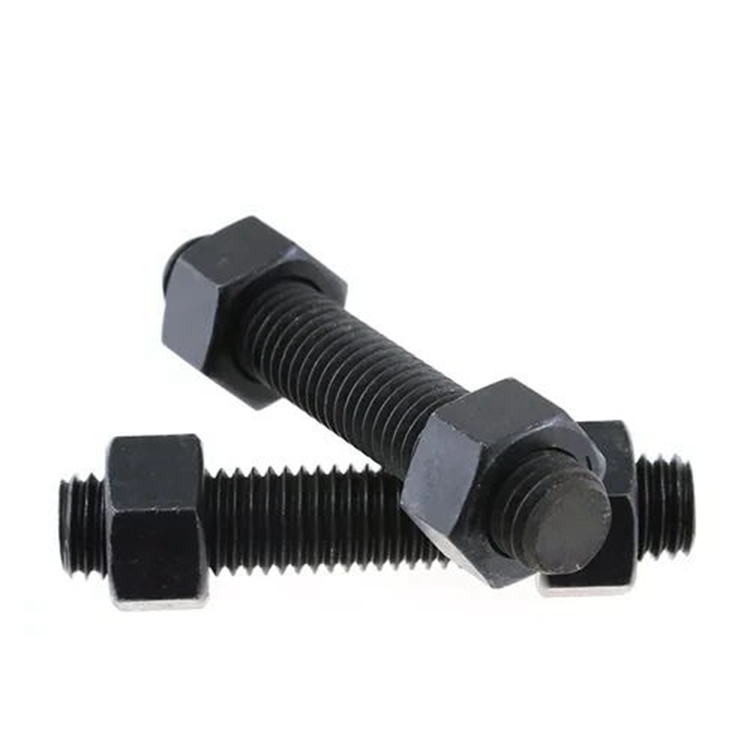OEM C Nuts for Reliable Fastening Solutions in Various Applications
Dec . 03, 2024 14:37 Back to list
OEM C Nuts for Reliable Fastening Solutions in Various Applications
The Importance of OEM C Nuts in Modern Manufacturing
In today's dynamic manufacturing landscape, the significance of Original Equipment Manufacturer (OEM) components cannot be overstated. Among these, the C nut, a critical fastening component, plays a vital role in ensuring the structural integrity and reliability of various products. This article delves into the key aspects of OEM C nuts, exploring their applications, benefits, and the reasons they are indispensable in a wide range of industries.
Understanding C Nuts
C nuts, also known as cage nuts, are specialized fasteners that typically consist of a threaded nut encased within a rectangular or square cage. This innovative design allows C nuts to be inserted into pre-drilled holes in metallic or non-metallic surfaces, providing a reliable and secure means of fastening components together. Commonly made from durable materials such as steel or stainless steel, these nuts are engineered to withstand various mechanical stresses and environmental conditions.
Applications in Various Industries
OEM C nuts are employed across numerous sectors, including automotive, electronics, aerospace, and machinery. In the automotive industry, C nuts are essential for securing various parts such as engine mounts and body panels. Their ability to be easily installed and removed makes them an ideal choice for manufacturing processes that require efficiency and precision.
In electronics, C nuts are often used to secure circuit boards within housing units. Their robust design ensures that circuit boards remain stationary, which is crucial for the proper functioning of electronic devices. Similarly, in the aerospace sector, where safety and reliability are paramount, C nuts provide secure fastening solutions for various components, ensuring that critical systems operate without fail.
oem c nuts

Advantages of Using OEM C Nuts
One of the primary advantages of utilizing OEM C nuts is their versatility. They are applicable in numerous settings, making them suitable for both high-volume manufacturing and custom applications. The ability to accommodate various screw sizes and types allows manufacturers to standardize components, reducing inventory complexity and cost.
Another significant benefit is the ease of installation. C nuts can be quickly and accurately inserted into holes, reducing labor time and enhancing overall production efficiency. This streamlined installation process contributes to lower operational costs and faster turnaround times, which are crucial in competitive manufacturing environments.
Furthermore, C nuts provide exceptional strength and durability. Their design ensures that they offer a strong connection between components, capable of withstanding vibrations, shocks, and thermal expansion. This reliability not only enhances the performance of the final product but also minimizes the risk of failures and repairs, ultimately leading to increased customer satisfaction.
Conclusion
In an era where quality and efficiency drive manufacturing success, OEM C nuts have emerged as a vital component across multiple industries. Their unique design, coupled with the benefits of versatility, ease of installation, and reliability, make them an indispensable choice for manufacturers seeking to enhance their processes and products. As industries continue to evolve and demand innovative solutions, the role of components like OEM C nuts will only become more crucial, reinforcing their position as foundational elements in the manufacturing sector. By investing in high-quality OEM C nuts, manufacturers can ensure that their products not only meet but exceed the expectations of their customers, paving the way for a successful future in an increasingly competitive market.
Latest news
-
High-Quality Panel Stud Bolt Reliable Panel Stud Bolt Factory & Suppliers
NewsJul.08,2025
-
High-Precision Fine Thread Locknuts Manufacturer & Supplier Custom Solutions
NewsJul.08,2025
-
PH Imperial Stud Bolt – High Strength Fasteners from Leading Supplier & Factory
NewsJul.07,2025
-
High-Quality Allen Wrench Bolts Leading Factory, Company & Suppliers
NewsJul.07,2025
-
Wholesale Ball Stud Bolt - High Quality Supplier & Factory Price Reliable Wholesale Ball Stud Bolt Company
NewsJul.06,2025
-
High-Strength Alloy Bolts Manufacturer & Supplier Quality Alloy Fasteners Factory
NewsJul.06,2025
